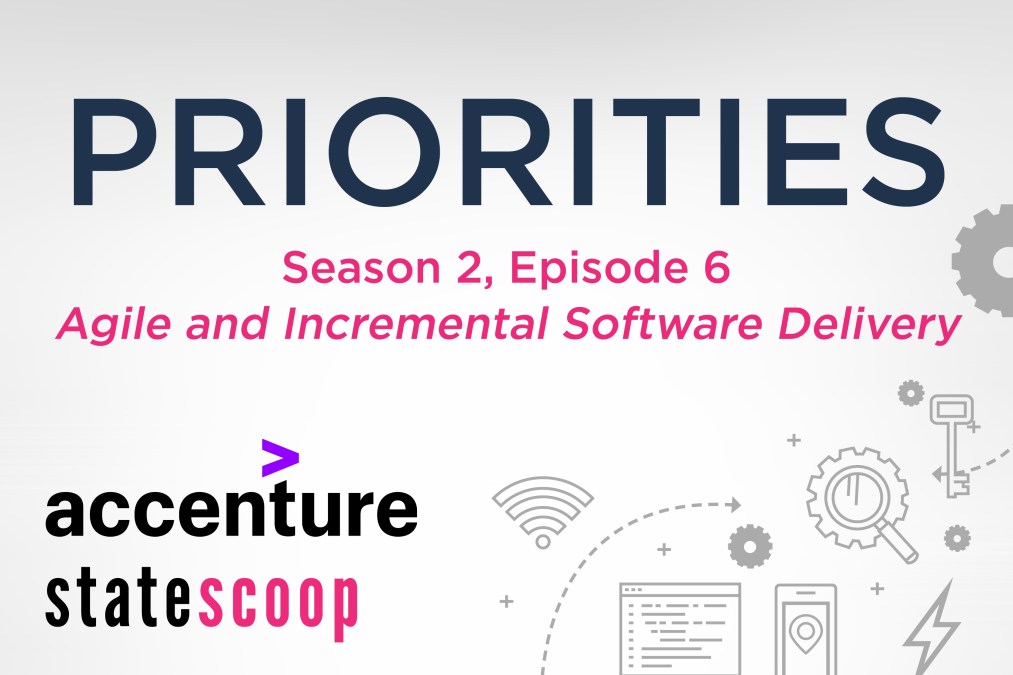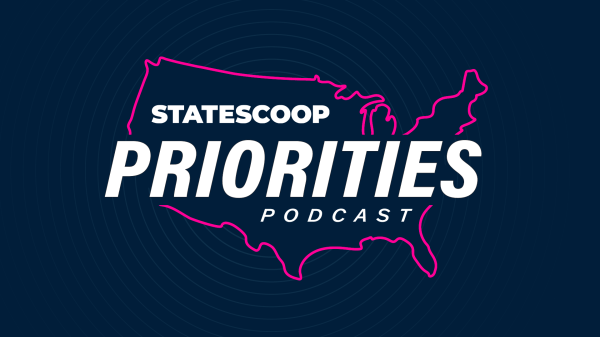
Engagement increases as agile continues its rise in government
Using agile development to build systems and programs across state government has yet to be a fully mandated practice, but states are increasingly tapping into the methodology to deliver better results, say private and public sector tech leaders in the latest episode of StateScoops Priorities podcast.
Ed Toner, Nebraskas chief information officer, saysthathis state does, like others, does not mandate his staff or teams to use agile, but for the teams that have so far, the results have been effective.
This approach is there, we provide the training, we invested heavily in coaching and training up front, and we will continue to do that, Toner says. I really think the benefitthat were seeing is really the outcome of our customers. The customer engagement is actually growing, and I think that is the reason why some of the other teams are starting to actually run a few of their projects using agile because our customers are starting to like that approach, and are really kind of insisting on it.
Peter Kelly ofCalifornias Health and Human Services Agency, agrees with Toner, and says he has seen a focus on agile on the rise.
In the last couple of years, we have been experimenting with agile at scale, bringing the ideas of iterative development, user-centric design together, says Kelly, who isthe chief deputy director of CHHSA’s Office of Systems Integration.Just as weve been able to bring it customer groups and start receiving valuable feedback, its getting more and more support.
The two tech leaders thoughts line up with early results from a joint report from Accenture and NASCIO on agiles rise in government. Keir Buckhurst, a managing director at Accenture, said Nebraska and California are “great examples.”
As weve talked to different states, theres a range for how states are approaching agile, Buckhurst says. I think in all the cases, though, the benefit that Im hearing very strongly is that the business engagement that comes with agile is helping improve outcomes.
The final report on agile from Accenture and NASCIO will be released Oct.2 at NASCIOs Annual Conference in Austin, Texas.
On the podcast:
- Ed Toner, chief information officer, Nebraska
- Peter Kelly, chief deputy director, California Health and Human Services Agency Office of Systems Integration
- Eric Sweden, enterprise architecture and governance program director, National Association of State Chief Information Officers
- Keir Buckhurst, managing director, Accenture
- Jake Williams, associate publisher and director of strategic initiatives, StateScoop
What to listen for:
- An upfront investment in training and workforce development around agile is key to making the methodology successful, Toner says.
- In order to achieve the benefits of iterative development, Kelly says, culture change in government more broadly is required. The state is working with executives and the legislature to change the expectations about how teams operate in California.
- Even if IT teams receive training for agile methodology, the users and people within business also need that training, Buckhurst says.
- Agile development could help change California change its development of services and ultimately result in better digital services for the state, Kelly says.
- Agile will have a “huge impact” on the success of projects and states will be able to redirect efforts to the challenged projects underway in state governments, which will save money, Sweden says.
Priorities is StateScoops regular podcast that examines the leading strategies, technologies and challenges that state CIOs expect to face this year. This episode of Priorities is brought to you by Accenture.
In addition to listening to Priorities on StateScoop.com, you can now subscribe to the podcast on iTunes and have episodes delivered directly to your podcasts app on your smartphone when they are released.

